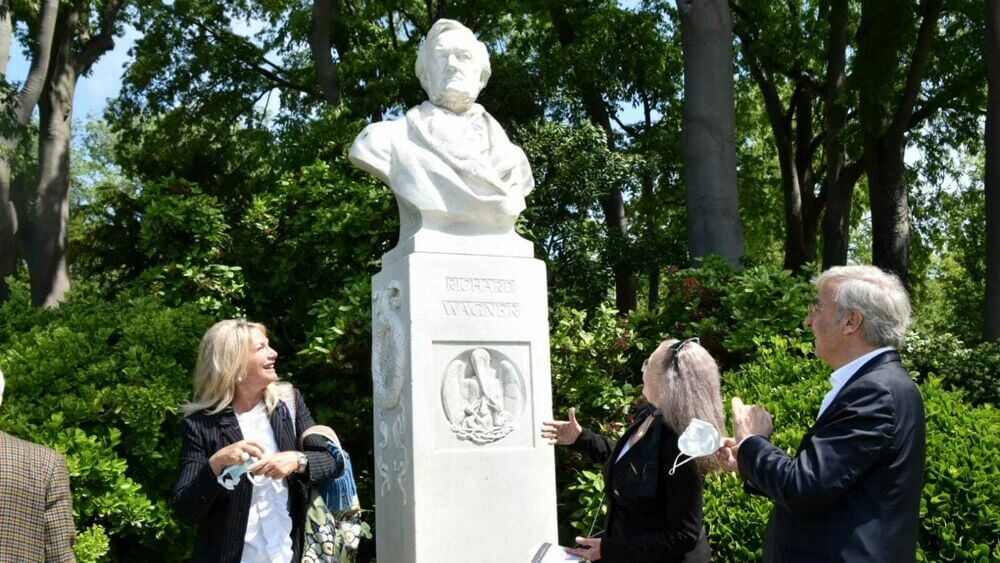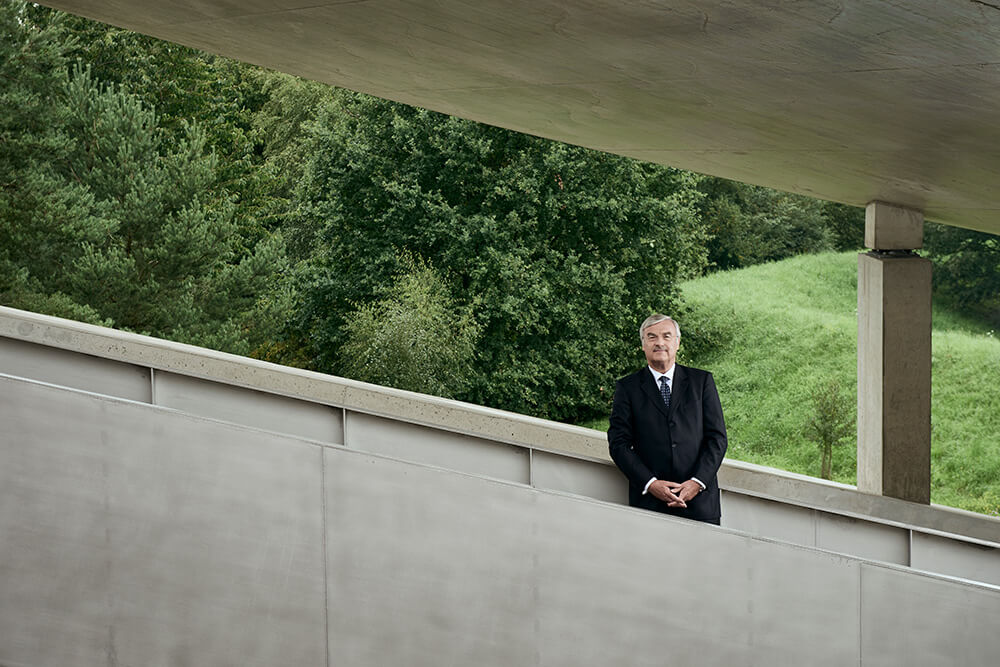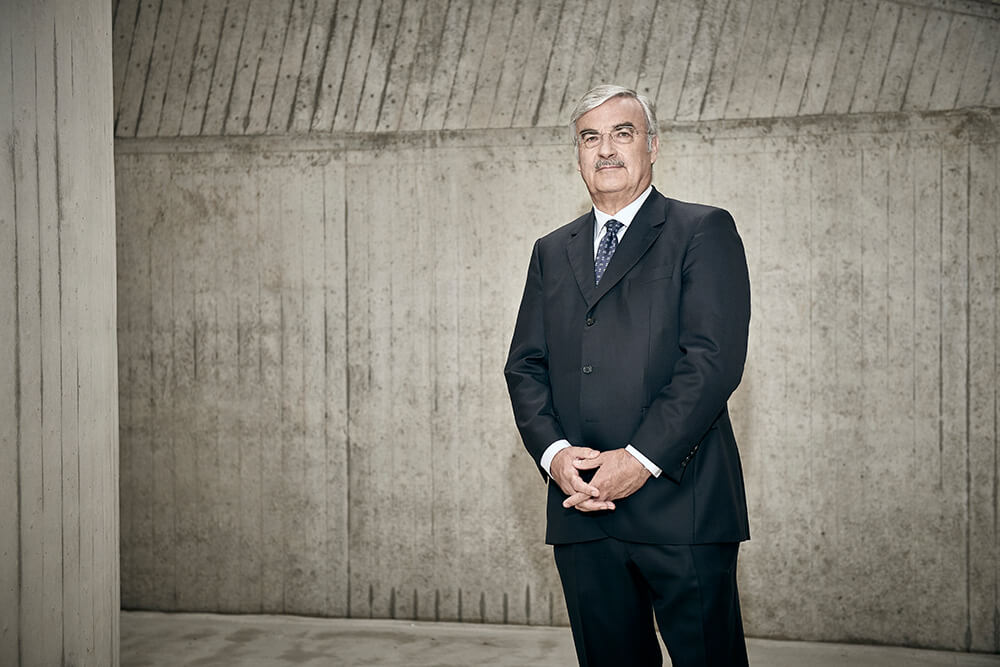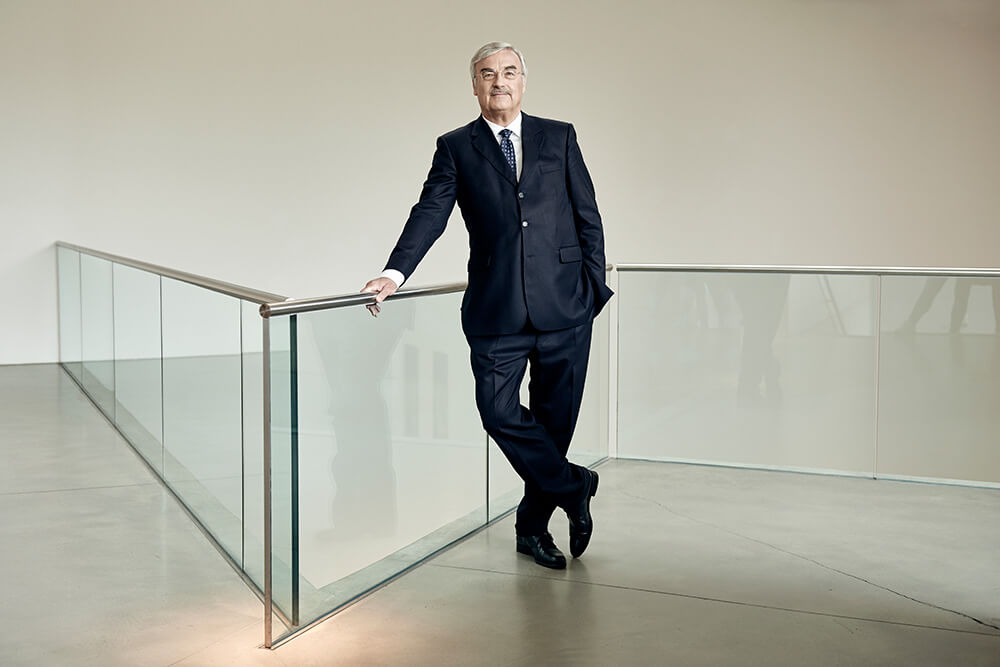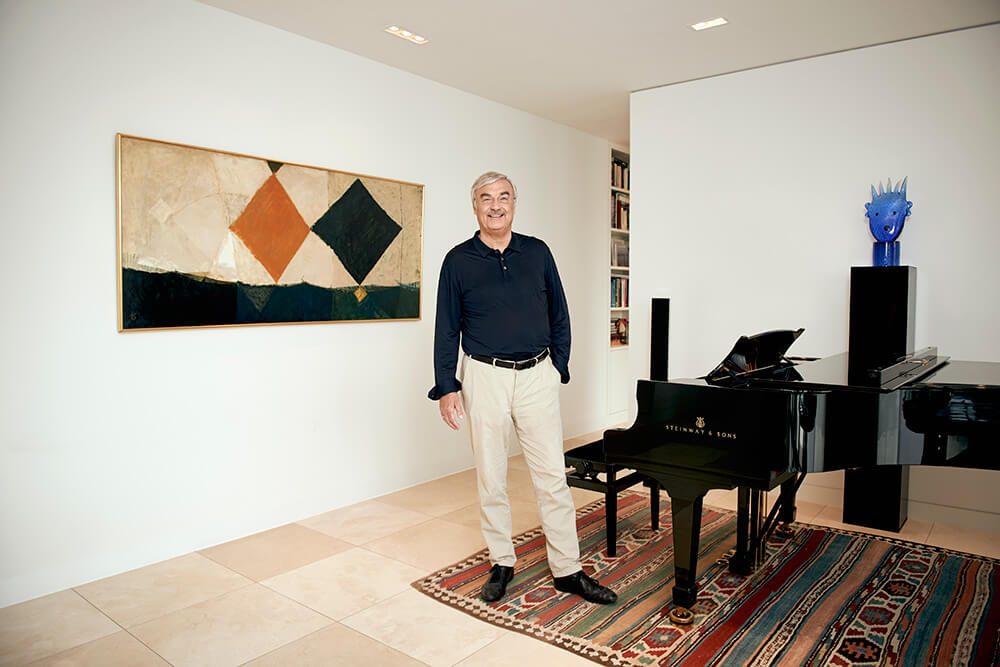Dr. Peter Gloystein: between art and entrepreneurship
My fascination for art and music has accompanied me since my early youth: When I was fourteen years old, I used my pocket money to buy a ticket for the opera. I was enchanted by the interplay of sound and songs, which took me to another world and inspired my imagination. Since then, classical music has never left me and the various forms of art have never cease to fascinate me.

Peter Gloystein
I am an entrepreneur and art lover at the same time.
I enjoy life in the field of tension between art and entrepreneurship: as different as the fields seem to be, they have a lot in common. Both entrepreneurs and artists are active in the creative space and interact with people – even if their respective activities are different.
In my professional life as a banker and management consultant, numbers dominate everyday life. In order to give balance to my life, I have been actively involved in cultural projects since the mid-1990s and currently I support these support associations:
- Insel Hombroich in Neuss (Chairman of the board until 2022)
- The Venetian Opera House Gran Teatro La Fenice di Venezia (Chairman of the board of the German Circle of Trustees)
- Fondazione Internazionale Richard Wagner di Venezia (Vice Chairman of the Administrative Board), Supporter of the Wagner Museum in Venice
- Deutsche Oper am Rhein in Düsseldorf/Duisburg (Member of the Board of Trustees)
- EuropaChorAkademie, Görlitz (Member of the Supervisory Board)
For these organisations I organise events for members as well as for the general public in order to raise donations for special projects.

Peter Gloystein
The arts need support.
Cultural commitment gives me great pleasure. That is why I like to support institutions that are close to my heart. I see myself as an interested, enthusiastic and relatively knowledgeable layman who appreciates gaining insight into the human, political and social dimensions of life through art and experiencing inspiring encounters with artists. I would like to pass on my fascination to other people, because I firmly believe that art not only brings joy, but also broadens horizons and teaches life.
My aim is to bring new art projects to life and to get young people excited about sophisticated, contemporary art. I would like to attract sponsors from society, business and politics who are just as committed as I am.
Narrative curriculum vitae
Dr. Peter Gloystein was born in Bremen on 25th November 1945, son to the economic advisor Georg Gloystein and his wife Helene Gloystein, née Massmann. His father Georg Gloystein had just returned home from British captivity having spent most of the war in Finland as an officer of the Wehrmacht.
Despite all the hardship of the post-war period, Peter Gloystein spent a happy youth in Bremen, which was however overshadowed by the early death of his father in 1963. His father had been self-employed for his entire life, interrupted by the two wars and inflation, which resulted in a poor pension forcing his mother to return to work as a physician’s assistant until well into advance age and until Peter Gloystein could start his own career. Peter Gloystein attended primary school in the Langemarckstraße in Bremen and grammar school at Leibnizplatz, which he completed by attaining the Abitur in 1964.
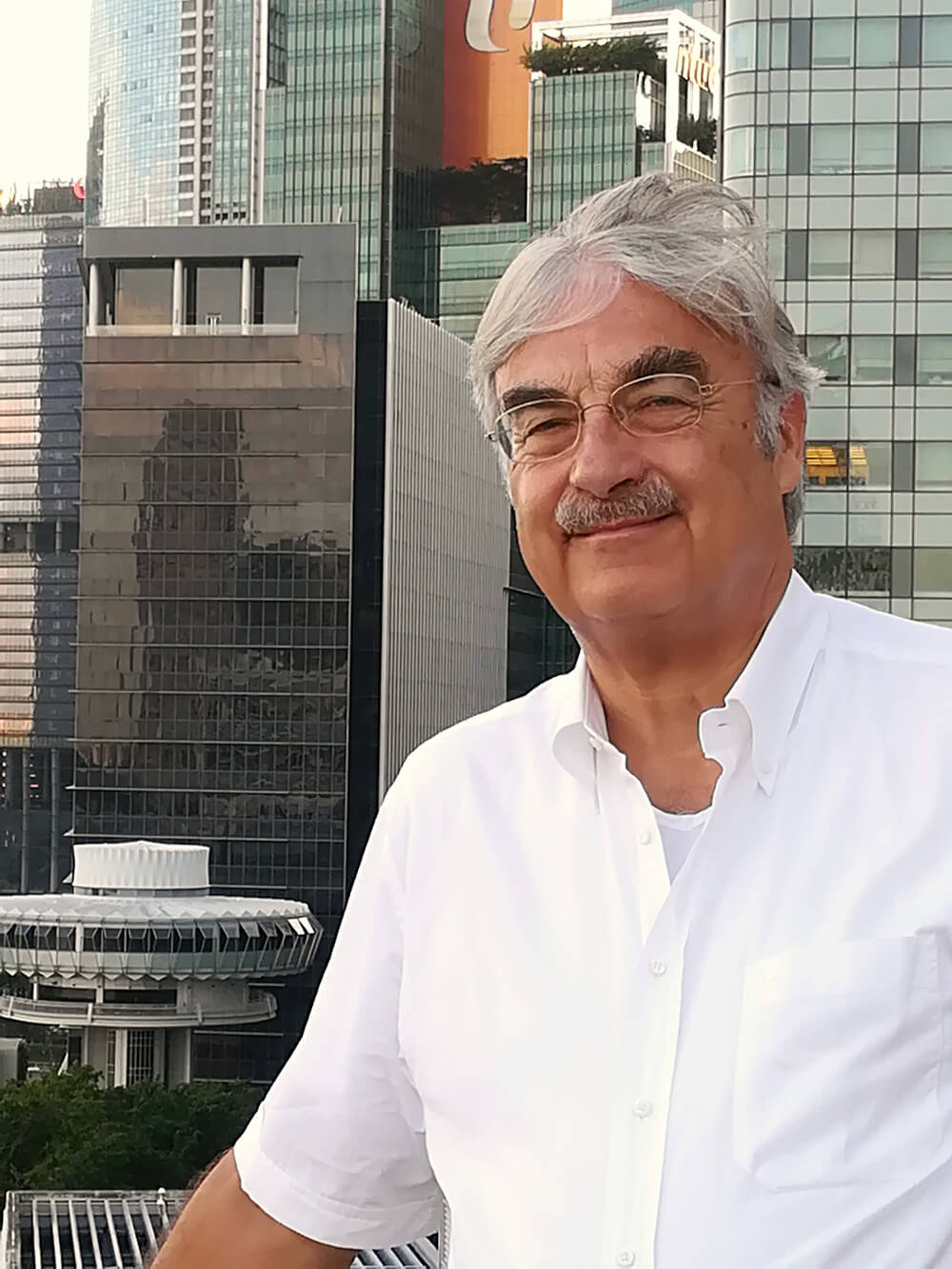
Politics, history and culture interested Peter Gloystein from early on. After becoming a member of the Protestant Youth Organisation, he joined the Junge Union and the Christian Democratic Party (CDU) in the early 1960s. He also headed the Political Working Group of the student council in Bremen and participated actively in the theatre and museum life of the city.
Two years in the German Armed Forces in the pioneer corps in Munich, Harburg and Stade followed. During his military service he held the rank of a lieutenant and finally platoon leader.
From 1966 to 1970, Peter Gloystein studied business administration at the University of Hamburg accompanied by several months of internships in Germany, Finland, Great Britain and the USA.
From 1971 to 1975, he worked as a research assistant at the department of International Monetary Policy of the Institute of Economic Research (HWWA) in Hamburg, where he published numerous articles and studies on European monetary and structural policy.
He earned his doctorate under Prof. Dr. Hans-Dietrich Ortlieb (President of the HWWA) on “The Monetary Union and European Industrial Policy”. His doctoral thesis was also published as a book.
In 1972, Peter Gloystein married Jean Carrick Morton from Leeds, Great Britain. She worked as a medical secretary for the renowned heart surgeon Prof. Gerald Graham in the Great Ormond Street Hospital in London. The marriage produced two now grown children and two grandchildren.
In 1975, Peter Gloystein moved from economic research into banking, working for the international capital markets department of the Westdeutsche Landesbank (WestLB) in Düsseldorf. As account officer, he was responsible for the capital market business in the countries of Southern and Eastern Europe, which only recently had entered the market. In 1978, he became Assistant to the Deputy Chairman of the Board of Managing Directors, Dr. Walter Seipp, who was very successfully managing the bank’s international business interests. Dr. Seipp’s move to Commerzbank as its Chairman of the Managing Board led to Peter Gloystein becoming the assistant to Dr. Johannes Völling, Chairman of the Managing Board of WestLB.
After Dr. Völling left WestLB in mid-1981, Dr. Seipp brought Peter Gloystein to Commerzbank, initially as Head of the Financial Planning Group in the central control and planning department. Commerzbank found itself in a strained situation at the time. The restructuring of the bank under Dr. Seipp, which bore fruits by the end of the decade, was largely coordinated by this newly established central control department led by Peter Gloystein. Later stages of his career at the Commerzbank include the co-management of the regional branch in Stuttgart where he was responsible for the corporate business sector for the whole Württemberg region (1986 – 1990) and becoming a Deputy Member (1990) and then full Member of the Board of Managing Directors of the bank (May 1991).
Until 1995, his role on the board encompassed responsibilities for the organisational division and the newly established commercial real estate division. In the organisational area, his activities focused on building up the bank’s network in the new East German market and the complete reorganisation of the bank in line with the new market requirements. Latter was carried out as part of an overall organisational project supported by McKinsey Consulting Group and colleagues from the board such as Martin Kohlhaussen (Chairman) and Klaus Müller-Gebel (Human Resources). The development of the commercial real estate department was based on the acquisition or foundation of various subsidiaries like Commerz-Leasing, Haus-Invest, Commerz Immobilien and Müller Immobilien. The period also saw the conception and construction of the new Commerzbank Tower in Frankfurt designed by Norman Forster.
In 1995, the bank assigned Peter Gloystein to the Board of Managing Directors’ private clients’ division, which at the time was experiencing considerable earnings and cost problems. Until 1999, when Peter Gloystein left the bank, the department was reorganised in large part through cost cuts, structural and systemic adjustments, a successful sales campaign and the establishment of the direct bank Comdirect.
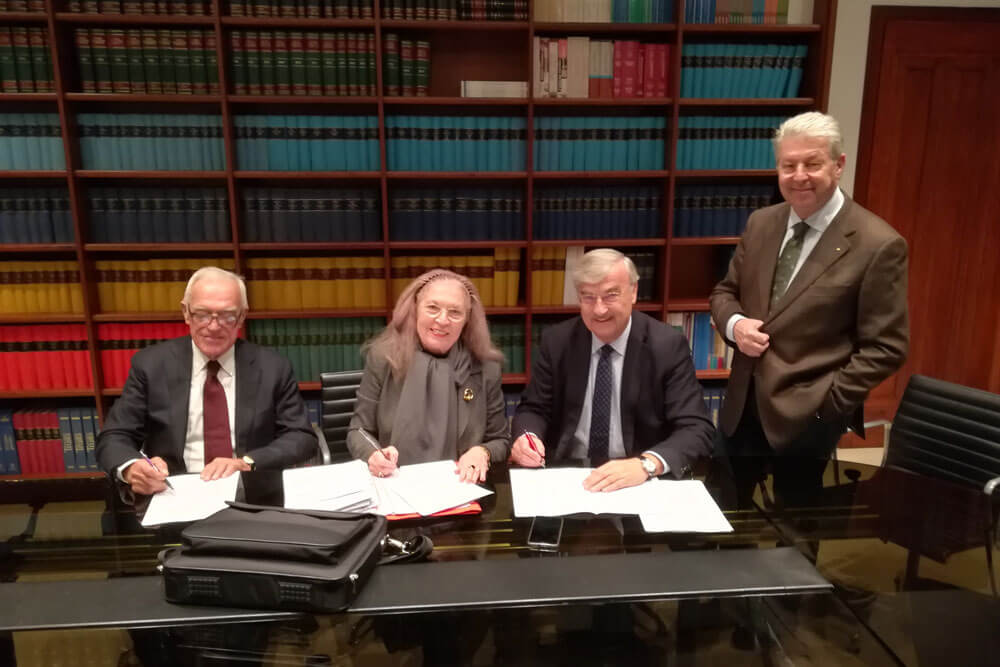
During this period, Peter Gloystein was also active in key roles in the Association of German Banks (payment transactions, credit cards, Eurocheck) and the European Banking Federation (later he became a member of the Board of Directors with a focus on international payment transaction and the Monetary Union). In this context, Peter Gloystein was also appointed by the European Commission as the German member of the Maas Commission which was responsible for the technical preparation of the European Monetary Union.
Towards of the end of the 1990s and despite the largely successful reorganisation of the private clients’ division, diverging views on how to proceed, particularly with regard to the investment and structural policy, led Peter Gloystein to the decision to leave the bank. It was not an easy one – especially considering his 18 years of service to the bank.
His new task as Chairman of the Board of Managing Directors of the BHF-Bank AG proved difficult. The bank, which had just been taken over by the ING Group with a stake of more than 90 percent, found itself in a far more tense situation than had been assumed or had been apparent to outsiders.
The dual task of restructuring the bank and integrating and coordinating with the ING Group was only partially successful. With the sale of the high-risk American, British and Asian portfolios and the discontinuation of the German commercial real estate business, a major risk reduction was achieved – an essential move for the bank’s continued existence. However, these actions were also accompanied by considerable write-offs and a noticeable reduction in gross earnings. The need to build up new earning potential in the German market – in the ING context, this was the only direction that made sense – while at the same time continuing to reduce risk, lead to controversial discussions both on the level of the Board of Managing Directors and in coordination with ING – without a conclusive result. The main issue was the future role of the corporate customer business. This deeply unsatisfactory situation led to Peter Gloystein resigning at the end of August 2002.
In addition to his position at the BHF-Bank, Peter Gloystein was also a member of the Executive Committee Europe of the ING Group, which managed the banking activities of the bancassurance group in the European market and beyond. His responsibility was to coordinate all of ING activities in Germany and Austria. The focus was the complete take-over of the direct bank Diba AG, which was finally achieved with his significant involvement (he was a member of the Supervisory Board of Diba AG at the time) in 2001. This acquisition laid the foundation for the great market success of the merged bank now called ING-Diba AG. Until the end of 2002, Peter Gloystein was a Member of the Supervisory Board of ING-Diba being able to rely on his experience of setting up Comdirect Bank in the 1990s.
When Peter Gloystein left BHF-Bank in the course of 2002, he also laid down all roles he carried at ING. His friendly relationship with ING remained unaffected.
The years 2003 and 2004 were marked by a professional reorientation. Surprisingly, in mid-2004, the Bremen charter of the Christian Democratic Party (CDU) asked him whether he would be willing to take over the position of Deputy Mayor of the city-state of Bremen replacing Hartmut Perschau, who had fallen ill. This meant that Peter Gloystein would become the Deputy of the President of the Senate, then Hennig Scherf. This position also included the Senator for Economy and Ports and the Senator for Culture. The city-state of Bremen found itself in a bad economic situation and in an extremely critical budgetary situation. Furthermore, the parties of the grand coalition did not work very harmoniously together.
After a bit of hesitation, Peter Gloystein accepted the position, as it offered the opportunity to help solve the problems of his beloved hometown of Bremen, where he had not lived since 1964.
A further incentive was that the position involved not only the familiar economic and financial sector, but also the cultural one. At first, the new responsibilities seemed quite promising. The cooperation with Henning Scherf, Senate President (SPD), worked well. Important projects – some of which had been initiated by the predecessors – could begin: the major infrastructure projects like the new old port, the Kaiserschleuse in Bremerhaven and laying the foundation stone for the Emigration Museum. Above all, however, it was necessary to put the city’s rampant investment planning onto a realistic footing as it in no way matched its budgetary situation. In this, Peter Gloystein was successful. He could not, however, find a viable solution for the problematic project called Spacepark.
In 2005, Bremen’s financial situation deteriorated further as the anticipated federal support fell short of its promise. The ensuing budget discussions for the years 2006/07 were unsatisfactory – even within the own parliamentary group. Consequently, the climate between the coalition partners continued to worsen. There was hardly any prospect for a realistic solution to Bremen’s financial problems. Peter Gloystein was considering his resignation.
In the end, he resigned for a different reason: The “champagne incident” that had taken place on the marketplace of Bremen. At the opening of a wine festival on the occasion of the award of the UNESCO World Heritage status for the town hall of Bremen, Peter Gloystein – in a spontaneous reaction – poured champagne over a street person, who had previously taken the champagne bottle away from the stage and was asking for more champagne. The man had already tried to disrupt the event before. The audience on site reacted rather calmly to the incident. Peter Gloystein apologised to the man after the event.
However, the whole incident was photographed by a photographer from the Bild tabloid – no other press was present – and the newspaper published it large scale on the front page the next day. Most of the public comments, especially in the tabloids, were damming: “Neoliberal, rich banker humiliates homeless person”. Under these circumstances, Peter Gloystein saw no chance of fulfilling his political task of solving Bremen’s problems – especially as support from the Christian Democratic Party (CDU) was also waning. He resigned from his office, refusing to accept severance pay (as is usual in these cases).
With time and distance, the controversy of the champagne incident did abate, but the damage for Peter Gloystein’s career was considerable. He no longer could run for a public office as opponents and parts of the press would immediately republish the incriminating photo.
In the following years, Peter Gloystein focused on providing consulting services to the financial and cultural sector, later also to the social one. Until 2008 he remained in Bremen, in 2009 he moved to Düsseldorf. As a business angel he worked for many companies such as the rating agency Scope, the internet portal for classical music My Classic World as well as for the international art gallery Venice Projects, first in Basel and then in Venice. Additionally, Peter Gloystein is still active in the international merger and acquisitions sector – initially as senior advisor to the international company Lincoln International and from 2011 to 2022 as Chairman of the Supervisory Board of the Deutsche Mergers Acquisitions AG in Düsseldorf. The shares in My Classic World and Venice Projects have since been sold.
He further holds the position as a Chairman of the Advisory Board of the private equity firm Allistro in Frankfurt.
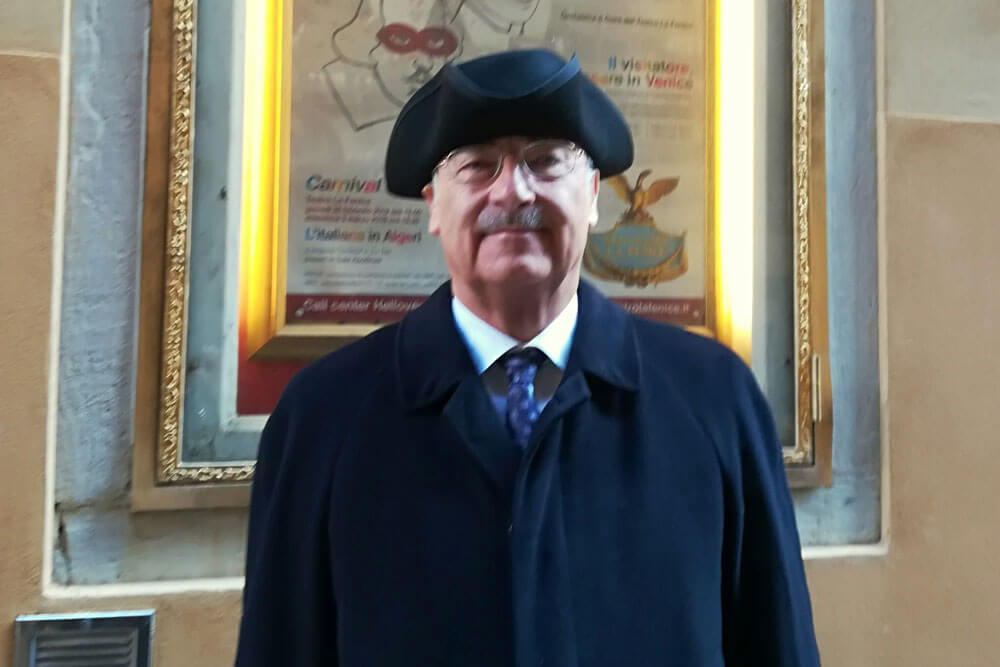
Among these activities, the project of the European rating agency Scope deserves special mention. This ambitious and now successful project established an European alternative to the predominantly American credit rating agencies. Peter Gloystein supported and accompanied Scope for more than ten years first as an investor, then as Chairman of the Supervisory and Advisory Boards. After this long, gratifying and successful period of service, Peter Gloystein stepped down as Chairman of the Advisory Board at the end of 2018 after having left the Chairmanship of the Supervisory Board in 2016. Presently, Peter Gloystein is Honorary Member of the Advisory Board. Peter Gloystein is currently an honorary member of the Advisory Board.
From 2018 until the beginning of 2022, Peter Gloystein worked in the project business with Fakt AG in Essen and the SUNfarming Group in Erkner near Berlin. In 2022, Peter Gloystein became Chairman of the Supervisory Board of DAIDALOS Investment Advisors GmbH, which structures and supports international investments.
Throughout his professional career, Peter Gloystein has always been involved in volunteer work: first in the 1980s as city councillor of Kronberg im Taunus for the Christian Democratic Party (CDU), in the 1990s as Chairman of the Friends of the Deutsche Oper am Rhein in Düsseldorf and Duisburg (where he continues being a Member of the Board of Trustees). His love for the arts also shows in his Chairmanship of the Friends of the Opera of Frankfurt (2001/02) and the Bayreuth Festival (2009/10). Since 2012, Peter Gloystein has held the position of Chairman of the German Circle of Friends of La Fenice Opera in Venice. Since 2019, he holds the position of Deputy Chairman of the Board of Directors of the Fondazione Internazionale Richard Wagner di Venezia, which supports the local Wagner Museum. Since 2021, Peter Gloystein is a Member of the Supervisory Board of the EuropaChorAkademie. Finally, he was a long-time member of the Federal Board of the Christian Democratic Party’s (CDU) Economic Council (until 2005).
One focus of his volunteer work is the wonderfully multidisciplinary, cultural project called “Insel Hombroich” near Neuss. Peter Gloystein’s commitment stems from his friendship with the island’s founder, Karl-Heinrich Müller, who has since passed. He met and befriended Müller in the 1990s during the acquisition of the commercial real estate firm Müller Immobilien by the Commerzbank. Peter Gloystein has been closely involved with this fascinating project since 1990 even during the time when he did not live in Düsseldorf. In 2009, Peter Gloystein took over as Chairman of the Insel Hombroich Support Association. After 30 years of service in the governing bodies of the association – including 13 years as chairman – Peter Gloystein resigned as chairman of the association of the Insel Hombroich in September 2022.
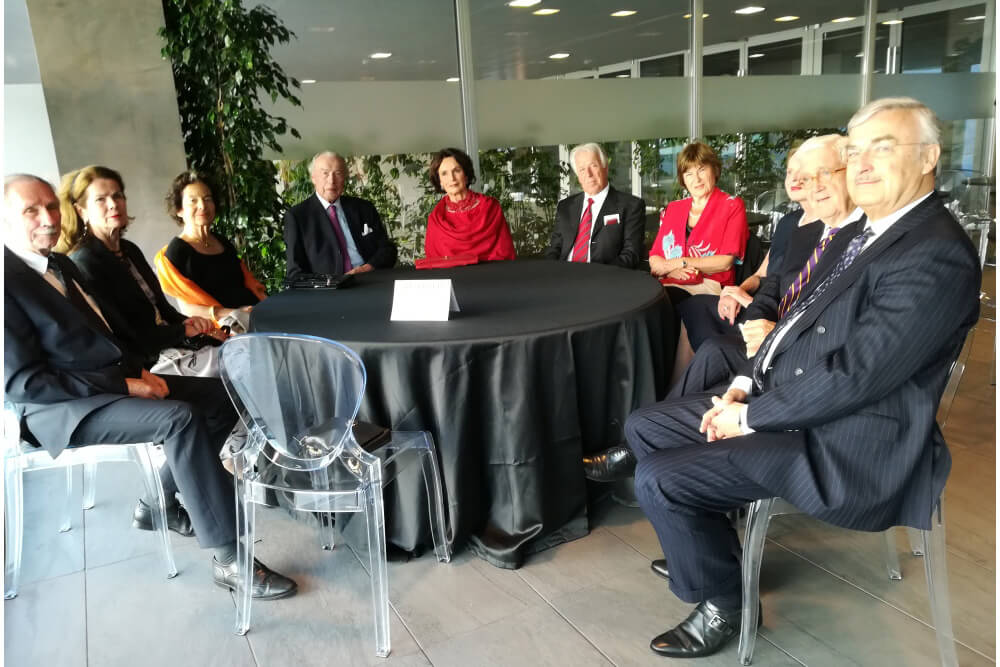
As can been see from his various positions, a further focus of Peter Gloystein’s cultural work is Venice, the city to which he has been very attached since the early 1990s and in which he now lives part-time.
Currently he is applying himself on supporting the grand opera house La Fenice and the local Wagner Museum, which is housed in Venice in the rooms of the Palazzo Vendramin Calergi, where Richard Wagner died in 1883. To support the museum, the Fondazione Internazionale Richard Wagner di Venezia was founded in 2019, in which Peter Gloystein is Vice-Chairman of the Board of Directors.
Since the beginning of the 1990s, Peter Gloystein has been a Knight of the Order of St. John and a member of the Rhein Charter (Rheinische Genossenschaft). He gladly accepted the request to join the Order of St. John because of its long European tradition and the combination of Christian and social works. Since 2014 he has been Chairman of the Board of Trustees of the Johanniter Hospital Bethesda in Mönchengladbach. From 2011 to 2019 he was treasurer of the Rheinische Genossenschaft. Peter Gloystein finds the organisational and social work associated with the Order of St. John very challenging, but also deeply satisfying.
In 2013, Peter Gloystein and his family were hit by a big shock: his beloved wife Jean Carrick died unexpectedly at the age of 73 of pancreatic cancer. Jean was an extraordinary woman who not only positively managed her own family with love and energy, but also shaped and inspired her whole environment with her charm, kindness, drive and communicational skills. She was very active in the social sector on a voluntary basis.
Family and friends have been extremely important to Peter Gloystein throughout his life and especially during its difficult phases. He has been a member of the Rotary Club since 1990, which has opened doors to a different wonderful circle of friends accompanying him during his various professional stations. The diversity of this circle has always inspired him and his friendships will continue to be very important to him personally.
